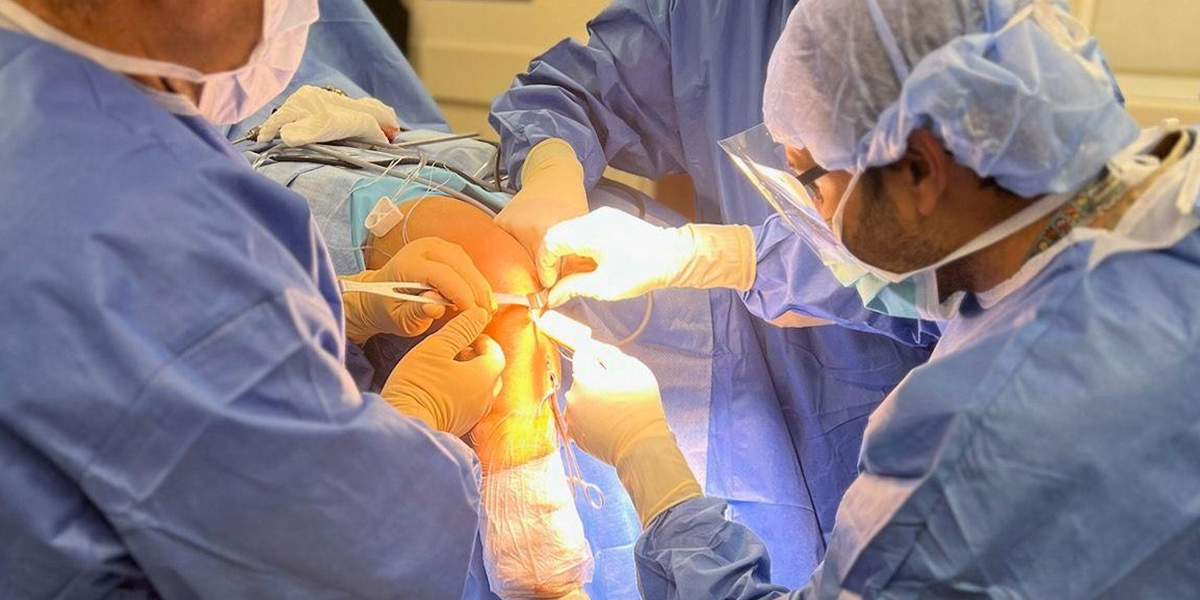Orthopedic Surgeons Perform Hackensack University Medical Center’s First BEAR ACL Repair Procedures with Continued Success
Newly FDA-approved technique offers a less invasive ACL repair option for young athletes

Orthopedic surgeons at Hackensack University Medical Center recently performed the center’s first three BEAR® (Bridge-Enhanced® ACL Restoration) anterior cruciate ligament (ACL) repair procedures.
The newly FDA-approved technique is used to repair ACL tears in the knee, a common injury seen in twisting sports, especially among our youngest athletes. Approximately 300,000 ACL surgeries are performed yearly in the U.S.
While BEAR restoration provides a less invasive method to repair an ACL tear, outcomes are similar to traditional surgical reconstruction approaches. No additional tissue needs to be harvested from the knee as in traditional ACL repair, which helps improve post-op comfort.
With BEAR restoration, the ACL partial or full tear is reattached rather than removed and excised. Once the surgeon reconnects the torn tissue and places the ligament back in proper alignment, a bioengineered bovine collagen sponge saturated with the patient’s blood is placed on the ligament. This promotes healing by supporting the tissue growth necessary for the ligament to reattach to the bone.
“It’s more than a repair, and it’s not a reconstruction. The patient’s own tissue repairs itself with support from the BEAR device,” said Amit Merchant, D.O., pediatric orthopedic surgeon, who performed the center’s first BEAR procedure with orthopedic surgeon Yair Kissin, M.D.
Another advantage of the BEAR approach for pediatric patients is that it does not risk damage to growth plates, which could result in a growth deformity in young individuals whose bones are still growing.
Learn more about innovative orthopedic care at Hackensack University Medical Center.

